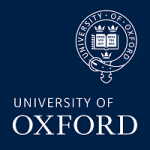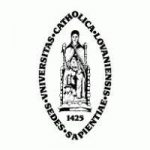项目介绍
About the course
The EPSRC Centre for Doctoral Training in Sustainable Approaches to Biomedical Science: Responsible and Reproducible Research (SABS: R³) is an innovative open collaboration between the University of Oxford and 22 partner industrial organisations.
This course is taking part in a pilot on the assessment procedure of graduate applications to address conscious and unconscious bias for entry in the 2021-22 academic year. Please carefully read the instructions concerning submission of your CV/résumé in the How to apply section page of this page, as well as the full details about this pilot.
SABS: R³ is predicated on the increasing reliance of biomedical research on computational approaches, and hence on well-engineered research software. The programme aims to train first-rate biomedical scientists equipped with the skills needed to transform their research through the creation of innovative, reusable computational tools and solutions for cutting-edge biomedical research problems.
This four-year programme of research and training has strong industrial links, with each student having both academic and industrial supervision.
The programme enables students from a range of quantitative scientific backgrounds to focus on biomedical research problems, including the design and testing of new chemical and biological entities, the modelling of biological and physiological systems, the robust analysis of large complex datasets and the development of novel computational methods for medical and biological imaging. This cross-disciplinary work introduces students to cutting-edge software engineering, machine learning, cheminformatics, computational simulation, bioinformatics, data mining, statistical analysis, physical and structural study of biomolecules, mathematical modelling, and medical and biological imaging. Underpinning the entire programme will be an appreciation of the vital importance of taking a responsible and reproducible approach to computational biomedical research.
The CDT’s industrial partners are currently AC Immune, AstraZeneca, BenevolentAI, the Cambridge Crystallographic Data Centre, Diamond Light Source, Elsevier, e-therapeutics, Exscientia, GE Healthcare, Hoffmann La Roche, Immunocore, Lhasa, LifeArc, Lurtis, MedImmune, Microsoft Research, Moffitt Cancer Center, Novo Nordisk, Oxford Drug Design (formerly InhibOx), Perspectum Diagnostics, SimOmics, UCB and Zegami.
A major advantage of the programme is that you are not required to choose the substantive DPhil project until after the initial taught training phase, allowing a more informed choice of research project to be made.
In addition to learning about biomedical science, the first six months of the course are devoted to acquiring advanced software development and theoretical and technical skills that form the backbone of interdisciplinary research in this area. This training draws from the engineering, mathematical, physical, chemical and biological sciences through a combination of intensive lecture courses, project work and hands-on software development. Each taught module lasts for either one, two or three weeks and is assessed using a method appropriate to the course: for example, open-source software development, presentations, group assignments or written work. This will be complemented with relevant research and communication skills training throughout the four years of the programme. A key element of the programme is the group-development of an open-source software solution to a current research problem put forward by our industrial collaborators.
After completion of the taught training phase, you will undertake two exploratory research projects of thirteen weeks’ duration each, similar in scope to a master’s-level project, followed by the three-year DPhil project. You will be based within the research group of your principal supervisor for these, which may be in the University or with an industrial partner.
Supervision
The allocation of graduate supervision is the responsibility of the Centre for Doctoral Training and it is not always possible to accommodate the preferences of incoming graduate students to work with a particular member of staff. In the first year of the course, students will be supervised by the programme directors, who will also support students in choosing their doctoral research project. Supervision arrangements for years two to four will therefore be confirmed at the end of the first year when the doctoral project is chosen.
Where possible your academic supervisor will not change for the duration of the doctoral research phase of your course (years two to four), however it may be necessary to assign a new academic supervisor for reasons which might include sabbatical leave, maternity leave or change in employment.
Assessment
During the first year students are assessed on the each of the taught modules undertaken in the first two terms as well as on each of the two short rotation projects undertaken. Satisfactory achievement will be required for progression to the research stage.
Assessment during the following three years of the programme will follow the regulations of the department in which you are hosted.
Graduate destinations
The programme is part of the DTC which has a strong record of alumni success. To date, around 60% of students have gone on to pursue academic careers and 20% have entered into industrial research. The DTC’s alumni are responsible for at least 20 start-up companies and over 30 granted or pending patents. Many students who have gone onto successful careers are invited back to talk to current students within the Research Skills sessions.
Changes to this course and your supervision
The University will seek to deliver this course in accordance with the description set out in this course page. However, there may be situations in which it is desirable or necessary for the University to make changes in course provision, either before or after registration. The safety of students, staff and visitors is paramount and major changes to delivery or services may have to be made in circumstances of a pandemic (including Covid-19), epidemic or local health emergency. In addition, in certain circumstances, for example due to visa difficulties or because the health needs of students cannot be met, it may be necessary to make adjustments to course requirements for international study.
Where possible your academic supervisor will not change for the duration of your course. However, it may be necessary to assign a new academic supervisor during the course of study or before registration for reasons which might include illness, sabbatical leave, parental leave or change in employment.
For further information please see our page on changes to courses and the provisions of the student contract regarding changes to courses.
录取要求
-
a first-class or strong upper second-class undergraduate degree with honours in physical sciences (ie chemistry, computer science, engineering, mathematics, statistics or physics)
-
Applicants with degrees in other scientific disciplines with strong quantitative/mathematical backgrounds and/or strong programming/software engineering skills are also encouraged to apply.
-
Entrance is very competitive and most successful applicants have or are on track to obtain a first-class degree or the equivalent.
联系方式
电话: +44 1865 270000相关项目推荐
KD博士实时收录全球顶尖院校的博士项目,总有一个项目等着你!






